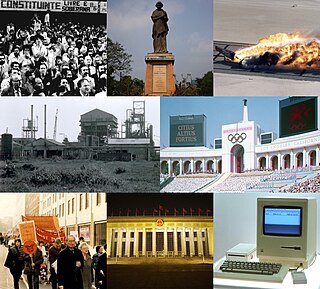
1984 (MCMLXXXIV) was a leap year starting on Sunday of the Gregorian calendar, the 1984th year of the Common Era (CE) and Anno Domini (AD) designations, the 984th year of the 2nd millennium, the 84th year of the 20th century, and the 5th year of the 1980s decade.
Reitz is a small maize, wheat and cattle farming town located in the east of the Free State province of South Africa.
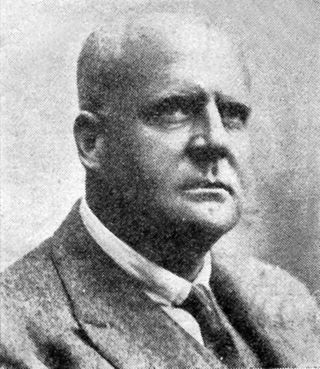
Deneys Reitz (1882–1944), son of Francis William Reitz, was a Boer warrior who fought in the Second Boer War for the South African Republic against the British Empire. After a period of exile in French Madagascar he returned to South Africa, where he became a lawyer and founded a major South African law firm. In the First World War he fought for the Union of South Africa against the German Empire, and then was an officer in the British Army, commanding several battalions. In later life he was a politician. Deneys Reitz was educated at Grey College, Bloemfontein.

The Jubilee Diamond, originally known as the Reitz Diamond is a colourless, cushion-shaped diamond weighing 245.35 carats, making it the sixth largest diamond in the world. It was originally named after Francis William Reitz, the then president of the Orange Free State where the stone was discovered, before being renamed to honour the 60th anniversary of the coronation of Queen Victoria in 1897.

Diane Joyce Drufenbrock, also known as Sister Madeleine Sophie, was an American religious sister as a member of the Catholic School Sisters of St. Francis. She was a Christian socialist who was the vice-presidential candidate for the Socialist Party USA in the 1980 United States presidential election.

The Chief Justice of South Africa is the most senior judge of the Constitutional Court and head of the judiciary of South Africa, who exercises final authority over the functioning and management of all the courts.

Francis William Reitz, Jr. was a South African lawyer, politician, statesman, publicist, and poet who was a member of parliament of the Cape Colony, Chief Justice and fifth State President of the Orange Free State, State Secretary of the South African Republic at the time of the Second Boer War, and the first president of the Senate of the Union of South Africa.

Francis Joseph Reitz High School is a public high school on the west side of Evansville, Indiana. It was founded in 1918 following a donation from local philanthropist and banker Francis Joseph Reitz, for whom the school is named. It is the second-oldest high school in the city after Evansville Central High School and is run by the Evansville Vanderburgh School Corporation.
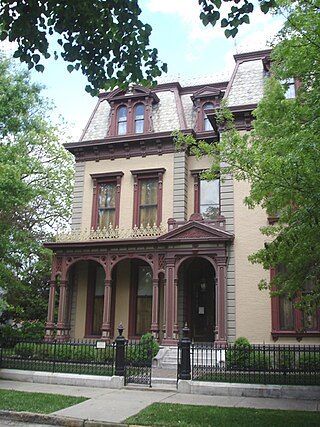
The Reitz Home Museum is a Victorian house museum located in the Riverside Historic District in downtown Evansville, Indiana. The museum offers year-round guided tours.

Reitz Memorial High School or simply Memorial High School (MHS) is an inter-parochial Catholic high school on the east side of Evansville, Indiana. It sits on land bought with money donated by Francis Joseph Reitz in 1922 in memory of his parents, John Augustus and Gertrude Reitz. The school officially opened its doors on January 5, 1925. It is part of the Diocese of Evansville.

Sir Christoffel Joseph Brand was a Cape jurist, politician, statesman and first Speaker of the Legislative Assembly of the Cape Colony.
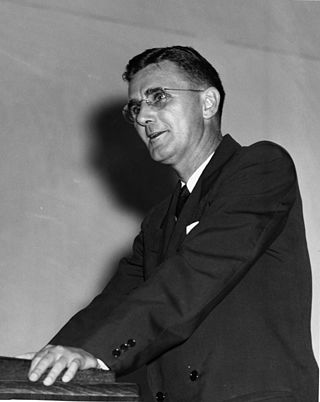
Julius Wayne Reitz was an American agricultural economist, professor and university president. Reitz was a native of Kansas, and earned bachelor's, master's and doctorate degrees in his chosen field. After working as an agricultural economist, university professor and U.S. government agricultural administrator, Reitz was selected to be the fifth president of the University of Florida, serving from 1955 until 1967.

Pieter Jeremias Blignaut was a South African (Boer) civil servant, Government Secretary of the Orange Free State (1879–1902), and served twice as Acting State President, first after the death of President Brand (1888–1889), and again after the resignation of President Reitz in 1895–1896. After the conclusion of the South African War, Blignaut served as member of both the legislative council and the Legislative Assembly of the Orange River Colony. He was also a member of several state commissions.
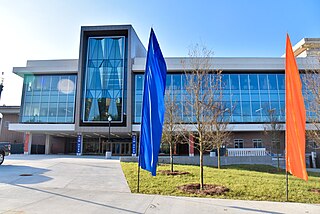
The J. Wayne Reitz Union is the student union of the University of Florida, located on Museum Road on the university campus in Gainesville, Florida, United States. The union was named in honor of J. Wayne Reitz, the fifth president of the university, who served from 1955 to 1967. The building, which was originally completed in 1967, contains dining facilities, meeting rooms, offices, a computer lab, a game room, an outdoor amphitheater, retail stores, a movie theater and a hotel.
Presidential elections were held in the Orange Free State in February 1896. They were held after the former President Francis William Reitz resigned due to bad health in 1895. The two candidates were High Court judge Martinus Theunis Steyn and John G. Fraser. Whilst Steyn supported the proposed merger of the Orange Free State and Transvaal, Fraser was in favour of closer links with the neighbouring Cape Colony and the United Kingdom.
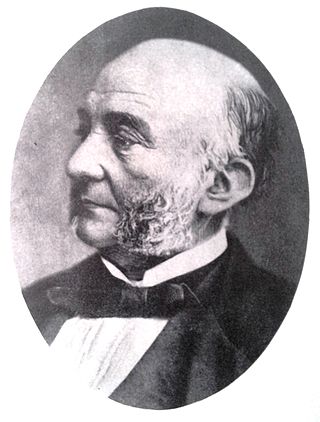
Francis William Reitz Sr. MLC MLA was an influential member of both houses of the Parliament of the Cape of Good Hope.
Francis Reitz may refer to:

The Old Presidency or Ou Presidensie (Afrikaans) is a museum, art gallery and theatre in the city of Bloemfontein, South Africa, located on President Brand Street in the heart of the city. The former residence of the President of the Republic of the Orange Free State from 1886 until 1899 when the city fell to the British Empire during the Second Anglo-Boer War.

The first election for the Parliament of the Cape of Good Hope was held in 1854. There were no clear party lines, however many representatives for Eastern electoral districts subscribed to a common programme which emphasised separation from the Cape Colony or moving the seat of colonial government eastward, a vagrancy law, or increasing the property qualification part of the franchise.
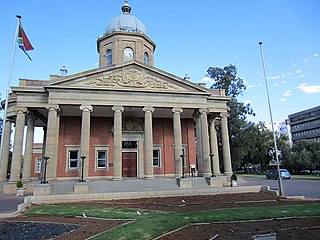
The Fourth Raadsaal is a historic building in Bloemfontein, South Africa, which serves as the meeting place of the Free State Provincial Legislature, the legislature of the Free State. It is located opposite the Supreme Court of Appeal in President Brand Street.

















